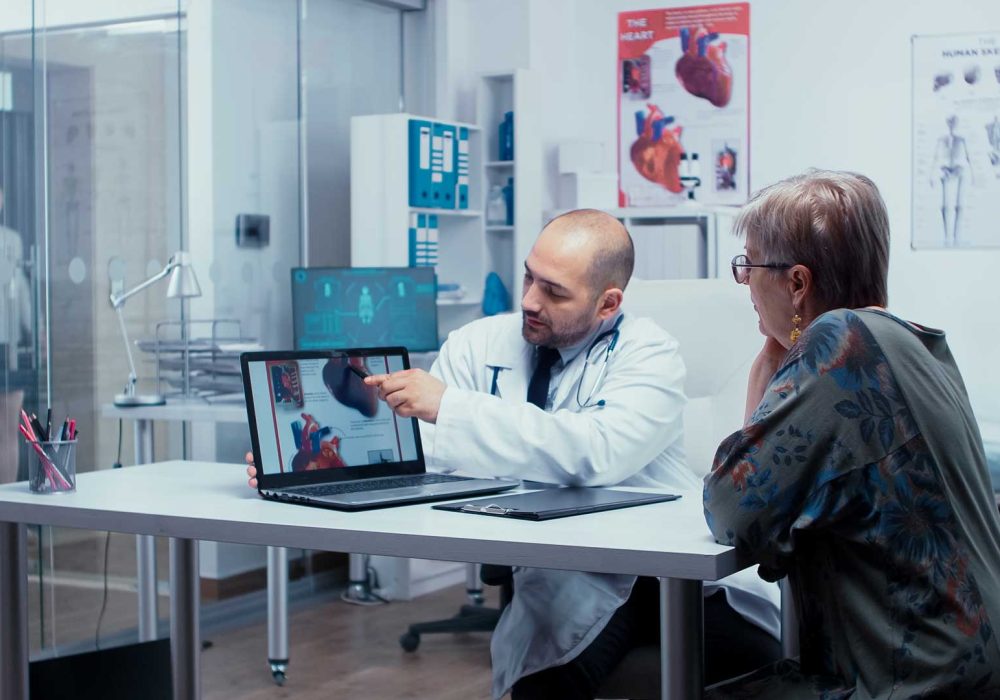
Cardiaology

Cardiaology
PCRI Hospital’s Cardiology Department is dedicated to providing comprehensive and compassionate care for patients with heart conditions. Our team of skilled cardiologists, cardiac surgeons, and specialized staff is committed to using the latest advancements in medical technology to diagnose, treat, and prevent a wide range of cardiovascular diseases.
Our services include:
- Diagnostic Tests: Echocardiograms, stress tests, electrocardiograms (EKGs), cardiac CT scans, and more.
- Medical Management: Treatment for conditions such as high blood pressure, heart failure, arrhythmias, and coronary artery disease.
- Interventional Cardiology: Procedures like angioplasty, stenting, and intracoronary stent placement.
- Cardiac Surgery: Open-heart surgery, valve replacements, and bypass procedures.
- Preventive Cardiology: Lifestyle counseling, risk assessment, and screening programs.
At PCRI Hospital, we believe in a patient-centered approach that prioritizes your comfort and well-being throughout your entire healthcare journey. Our state-of-the-art facilities and experienced team are dedicated to providing you with the highest quality care.
Approach
When approaching the Cardiology Department at PCRI Hospital, consider the following steps:
1. Consultation with Your Primary Care Physician:
- Discuss your symptoms and concerns with your primary care physician.
- They can determine if a referral to a cardiologist is necessary.
- Provide your doctor with a detailed history of your medical conditions, family history, and any current medications.
2. Scheduling an Appointment:
- Once you have a referral, contact the Cardiology Department at PCRI Hospital to schedule an appointment.
- Be prepared to provide your insurance information and any relevant medical records.
3. Preparing for Your Appointment:
- Bring a list of your current medications and dosages.
- Note any allergies or sensitivities you may have.
- If you have recent test results (e.g., EKG, echocardiogram), bring copies with you.
4. During Your Appointment:
- Be prepared to discuss your symptoms in detail, including:
- Chest pain or discomfort
- Shortness of breath
- Heart palpitations
- Dizziness or fainting
- Swelling in the legs or ankles
- Fatigue
- The cardiologist will conduct a physical examination and may order additional tests to diagnose your condition.
5. Following Up:
- After your appointment, follow the cardiologist’s instructions carefully.
- Attend any follow-up appointments as scheduled.
- If you have any questions or concerns, don’t hesitate to contact the Cardiology Department.
Remember: Early detection and treatment of heart conditions can significantly improve your quality of life. If you’re experiencing any symptoms related to heart health, it’s important to seek medical attention promptly.
A heart attack occurs when blood flow to the heart muscle is blocked, often due to a blood clot in a coronary artery. This can cause damage or death to the heart tissue.
What are the symptoms of heart failure?
-
- Symptoms of heart failure can include shortness of breath, fatigue, swelling in the legs or ankles, rapid heartbeat, and persistent cough.
-
- To prevent stroke, you can manage risk factors like high blood pressure, high cholesterol, diabetes, and smoking. Regular exercise, a healthy diet, and maintaining a healthy weight are also important.
What is coronary artery disease?
Coronary artery disease is a condition where the arteries that supply blood to the heart become narrowed or blocked due to plaque buildup. This can lead to heart attacks.
Opening Hours
Mon – Fri
24 HOURS
Sat – Sun
24 HOURS
Make Your Appointment
Get Free Medical Consultation, Call 08622-256779
-
1-53 Srinagar Chinnapadugupadu, before NH-67 NTS Railwaygate Nellore-524137 Andhra Pradesh India -
08622-256779
-
+917989692626
-
info@pcripl.com
Stay Connected
Youtube
Facebook
Instagram
Twitter
